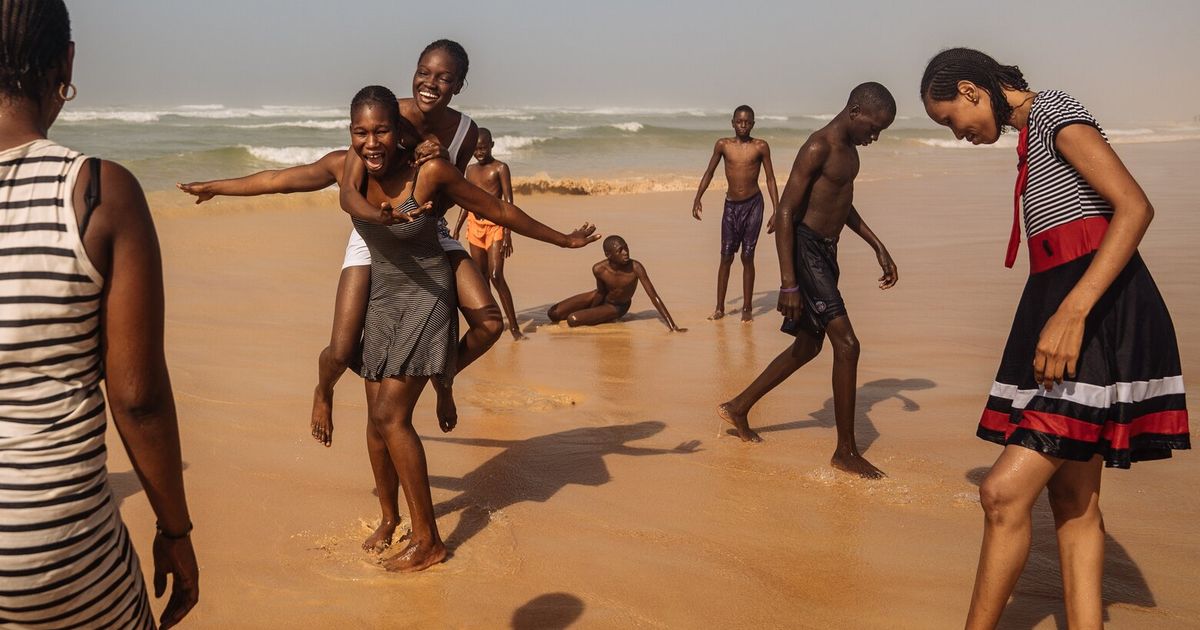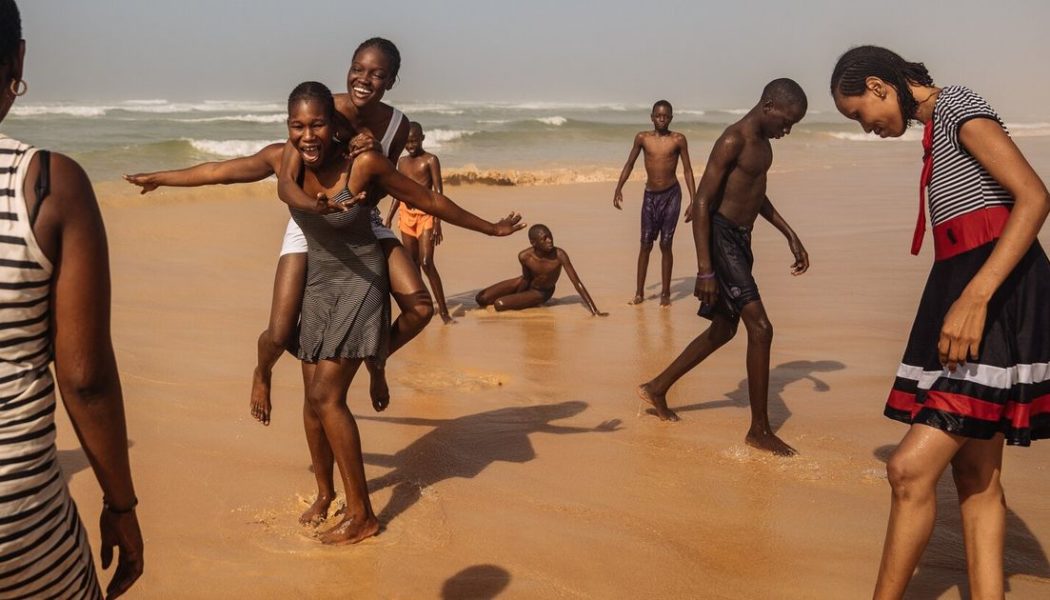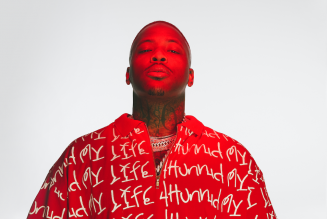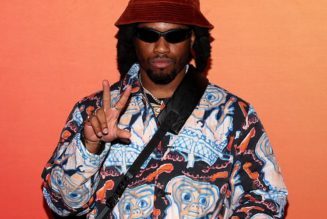
As the world grays, Africa blooms with youth.
By 2050, 1 in 4 people on the planet will be African, a seismic change that’s already starting to register.
You can hear it in the music the world listens to. You can see it in movies, fashion and politics.
You can sense it in the entrepreneurial drive of young Africans — and the urgent scramble for jobs.
You can see it in the waves of youth who risk all to migrate — and in the dilemmas of those who remain.
Astonishing change is underway in Africa, where the population is projected to nearly double to 2.5 billion over the next quarter-century — an era that will not only transform many African countries, experts say, but also radically reshape their relationship with the rest of the world.
Birthrates are tumbling in richer nations, creating anxiety about how to care for, and pay for, their aging societies. But Africa’s baby boom continues apace, fueling the youngest, fastest growing population on earth.
In 1950, Africans made up 8% of the world’s people. A century later, they will account for one-quarter of humanity and at least one-third of all young people ages 15 to 24, according to United Nations forecasts.
The median age on the African continent is 19. In India, the world’s most populous country, it is 28. In China and the United States, it is 38.
The implications of this “youthquake,” as some call it, are immense yet uncertain and likely to vary greatly across Africa, a continent of myriad cultures and some 54 countries that covers an area larger than China, Europe, India and the United States combined. But its first signs are already here.
It reverberates in the bustle and thrum of the continent’s ballooning cities. It pulses in the packed stadiums of London or New York, where African musicians are storming the world of pop.
Africa’s political reach is growing, too. Its leaders are courted at flashy summits by foreign powers that covet their huge reserves of the minerals needed to make electric cars and solar panels.
With a growing choice of eager allies, including Russia, China, the United States, Turkey and Gulf petrostates, African leaders are spurning the image of victim and demanding a bigger say. In September, the African Union joined the Group of 20, the premier forum for international economic cooperation.
In many countries, historically low birthrates are creating older, smaller populations. Africa’s challenge is to manage unbridled growth. Within the next decade, Africa will have the world’s largest workforce, surpassing China and India. By the 2040s, it will account for 2 out of every 5 children born on the planet.
Experts say this approaching tide of humanity will push Africa to the fore of the most pressing concerns of our age, like climate change, the energy transition and migration.
But it has also exposed the continent’s gaping vulnerabilities.
Peril and potential
Africa’s soaring population is partly a result of remarkable progress. Africans eat better and live longer than ever, on average. Infant mortality has been halved since 2000; calorie intake has soared.
But while a handful of African countries are poised to ride the demographic wave, others risk being swamped by it.
Nigeria, Africa’s most populous nation, is already deeply stressed. Nearly two-thirds of its 213 million people live on less than $2 a day; extremist violence and banditry are rife; and life expectancy is just 53, nine years below the African average.
Yet Nigeria adds another 5 million people every year and by 2050 is expected to overtake the United States as the world’s third-most populous country.
Young Africans are better educated and more connected than ever: 44% graduated from high school in 2020, up from 27% in 2000, and about 570 million people use the internet. But finding a good job, or any job, is another matter.
Up to 1 million Africans enter the labor market every month, but fewer than 1 in 4 get a formal job, the World Bank says. Unemployment in South Africa, the continent’s most industrialized nation, runs at a crushing 35%.
Frustration feeds desperation.
In countries like Somalia, Mozambique and Mali, opportunity-starved youths pick up guns to fight for jihad or for money. In Gabon and Niger, youngsters fed up with sham politics crowd streets and stadiums to yell slogans in favor of military coups.
On the high seas, smugglers’ boats make perilous journeys to Europe and the Middle East, carrying desperate young Africans and their dreams of a better future. At least 28,000 have died on the Mediterranean since 2014, the United Nations says.
The climate crisis is an especially urgent concern.
Floods, droughts and storms have battered African countries. Concern about climate change is shaping plans for the future and stoking worries about its impact.
The economic rise of China and India were the first great shocks of this century. Africa’s youthful tide will most likely drive the next seismic shift.
Its first tremors are already being felt, and nowhere more than in global culture.
Cultural powerhouse
African artists seemed to be on red carpets everywhere this year — at the Grammy Awards, which added a new category for Best African Music; at the Met Gala, where Nigerian singer Tems came fringed in ostrich feathers; and at the Cannes Film Festival, where a young French-Senegalese director, Ramata-Toulaye Sy, was a breakout star.
African fashion had its own shows in Paris and Milan. In Venice, Africa is the focus of this year’s Architectural Biennale. Last year, an architect from Burkina Faso won the prestigious Pritzker Prize. In 2021, Tanzania-born Abdulrazak Gurnah won the Nobel Prize in literature.
“Africa’s not just one place,” he said in an interview. “It’s complicated and complex; differentiated, contrasted.”
Long viewed in the West as a niche interest — or worse, exotica — African culture has become the continent’s soft power and, increasingly, a source of hard cash.
The world’s fastest-growing music market is in sub-Saharan Africa. By 2030, Africa’s film and music industries could be worth $20 billion and create 20 million jobs.
Young Africans are honing their talents, sensing an opening. Scriptwriters and animators are shaking off the clichéd image of a continent defined by famine and conflict to tell new stories — frothy reality shows, gritty gangster tales and even children’s cartoons, made in Africa by Africans.
The commercial potential of Africa’s cultural might is only starting to be realized. Netflix has spent $175 million in Africa since 2016.
Other foreign companies are looking to cash in. This year, gamma, a music company owned in part by Apple, set up an office in Lagos, hoping to discover the next Afrobeats stars. “We’re going straight to the source,” said Sipho Dlamini, a gamma executive.
Jobs crisis
Not long ago, technology was the big idea for enabling Africa to leapfrog its way out of poverty.
Startups sprouted in countries like Nigeria, South Africa and Morocco. Microsoft and Google established major centers in Kenya. Optimists spoke of an “Africa rising.”
But while technology brought billions in investment, it failed dismally on one crucial front: creating jobs.
Chronic unemployment, an old problem, is now a major crisis.
The continent’s working-age population — people ages 15 to 65 — will hit 1 billion in the next decade.
What will these 1 billion workers do?
It is a problem for the world, said Aubrey Hruby, an investor in Africa and an author of “The Next Africa.” She said, “After climate change, Africa’s jobs crisis will be a defining challenge of our era.”
Elsewhere, the answer was industrialization. In the 1970s and 1980s, when China, South Korea and Japan were the engines of population growth, their factories were filled with young people producing clothes, cars and TVs. It made them rich and lifted hundreds of millions out of poverty.
Africa is poorly positioned to repeat that feat. Most of the continent has failed to industrialize. In fact, it is losing ground: Africa’s share of global manufacturing is smaller today than it was in 1980.
Infrastructure is an obstacle. Some 600 million Africans, or 4 in 10, lack electricity. Major roads and railways often lead to the coasts, a legacy of extractive colonialism, which inhibits trade between countries.
And the baby boom endures, smothering economic growth.
On the whole, the continent cannot keep pace with its swelling population.
Adjusted for population size, Africa’s economy has grown by 1% annually since 1990, according to the global consulting firm McKinsey & Co. Over the same period, India’s grew 5% per year, and China’s grew 9%.
Despite making up 18% of the global population, Africa accounts for just 3% of all trade.
For legions of jobless and frustrated young Africans, that leaves only one good option: Get out. Every year, tens of thousands of doctors, nurses, academics and other skilled migrants flee the continent. (At least 1 million Africans from south of the Sahara have moved to Europe since 2010, according to the Pew Research Center.)
And the countries they leave behind depend on them to survive. In 2021, African migrants sent home $96 billion in remittances, three times more than the sum of all foreign aid, according to the African Development Bank.
“The African diaspora has become the largest financier of Africa,” said Akinwumi Adesina, the bank’s head.
In fact, the majority of young migrants do not even leave the continent, moving instead to other countries in Africa. But the plight of those who gamble their lives to travel further — left to die in sinking boats by the Greek coast guard, gunned down by Saudi border police or even stumbling through Central American jungle to reach the United States — has become a potent emblem of generational desperation.
The new big idea to invigorate African economies is the transition to green energy. Africa has 60% of the world’s solar energy potential and 70% of its cobalt, a key mineral for making electric vehicles. Its tropical rainforests pull more carbon from the atmosphere than the Amazon. Ambitious ventures are taking shape in numerous countries: a dazzling solar tower in Morocco; a $10 billion green hydrogen plant in Namibia; a Kenyan-made machine that extracts carbon from the air.
Young voters, old leaders
A youthful continent is run by old men. The average African leader is 63 years old; the oldest, President Paul Biya of Cameroon, is 90. Under their grip, democracy has fallen to its lowest point in decades: Half of all Africans live in countries considered “not free” by Freedom House.
Five African heads of state, including Biya, have held power for more than three decades; nearly all are grooming their sons as successors.
Even so, foreign powers are scrambling to back them.
President Paul Kagame of Rwanda, in power since 1994, receives more than $1 billion in Western aid annually and has established his tiny country as a hub for sports and international conferences — even as he is accused of killing or kidnapping his critics, or purports to win elections by a margin of 99%.
As the United States, China and Russia vie for position, an array of middle powers is crowding in too. About 400 new embassies have opened in African countries since 2012, according to the Diplometrics Program at the University of Denver; Turkey, Qatar, the United Arab Emirates and India top the list.
Yet there is one key group that Africa’s gerontocrats have disastrously failed to win over: the alienated youth of their own nations.
“Our elites treat us like idiots,” Nourdine Aouadé, a lawyer and young political leader, said at his office in Niger’s capital, Niamey, after a military takeover in August. Like many young Nigeriens, Awade, 32, supported the action.
“Coups are just the consequence of social injustice,” he said.
Most young Africans admire and desire democracy, numerous polls have found.
But disillusionment with politicians’ empty promises is giving rise to a new age of protest and to political activism.
Militants spreading
While some take flight, others pick up a gun.
In the Sahel, the semiarid region bordering the Sahara that runs across the African continent, tens of thousands of teenagers have joined militant groups linked to al-Qaida and the Islamic State group. They bring havoc in their wake — thousands of civilians killed, 5 million forced from their homes, and political destabilization that has led to a string of military coups.
But the main driver of this powerful insurgency is not an extremist ideology or religious belief, according to a U.N. study of 1,000 former fighters from eight countries. Instead, researchers found, the single biggest reason for joining a militant group was the simple desire to have a job.
The Sahel leads the world in two ways. It is the global center of extremist violence, accounting for 43% of all such deaths in 2022, according to the Global Terrorism Index. And it has the highest birthrates — on average seven children per woman in Niger and northern Nigeria, six in Mali and Chad, and five in Sudan and Burkina Faso.
High birthrates alone do not cause insurgencies.
But they are a major accelerant when combined with weak states and deep poverty.
A warming planet is also a major factor, erasing livelihoods and driving people to desperation.
These factors are why many view the Sahel as the most worrisome manifestation of Africa’s “youthquake.”
One key to tackling that problem lies with teenage girls like Asiya Saidu.
Like many in Zaria, a Muslim-majority city in northern Nigeria, Saidu expected to be married by 14 and to have her first child soon after.
Instead, she enrolled at the Center for Girls Education, a U.S.-funded program that has helped as many as 70,000 girls to stay in school and ultimately have smaller families.
Educating girls has an unusually large effect on family size in Africa because it delays the age of marriage and helps young women to space out their children, researchers have found.
Saidu, now 17, recently applied for nursing school.
“I do want to get married,” she said. But first, she said, “I want to be independent and learn to support myself.”
It could be that Africa will undergo transformations that are hard to see now.
This year’s surging turmoil — new crises, new wars and new economic slumps — would give pause to the greatest of optimists. Yet there are also reasons to hope.
“I tell my friends in England that the time will come when they will put out a red carpet for those guys now coming in boats,” said Mo Ibrahim, a Sudanese-born telecommunications tycoon and philanthropist.









